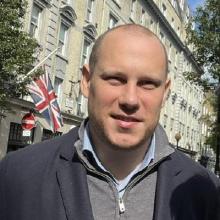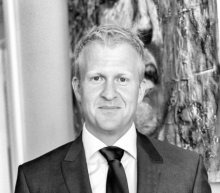Understanding performance engineering can be an amazing power, you can use it to cut costs or enable new features without making systems too expensive or unresponsive, and to enable fast responsive interfaces that customers love. This track explores all of these directions in a practical way that will give you ideas to take home and use, and covers practical and cutting edge techniques.
From this track
A Walk Along the Complexity-Performance Curve
Monday Apr 8 / 10:35AM BST
Software performance and complexity are related. It’s common for refactoring to introduce unanticipated regressions, and for performance optimisations to attract scrutiny in code review; how much performance improvement is worth a perceived loss of readability?

Richard Startin
Senior Software Engineer @Datadog
Opening the Box: Diagnosing Operating-System Task-Scheduler Behavior on Highly Multicore Machines
Monday Apr 8 / 11:45AM BST
An operating system task scheduler is responsible for placing tasks on cores and for selecting which task is allowed to run, at what time. As such, the scheduler is a critical component of any operating system and has a major impact on application performance.

Julia Lawall
Senior Scientist @INRIA
Pitfalls of Unified Memory Models in GPUs
Monday Apr 8 / 01:35PM BST
Modern GPUs offer support for so-called unified memory, providing a universal address space for both CPUs and GPUs.

Joe Rowell
Founding Engineer @poolside.ai, Low-Level Performance Engineer, Cryptographer and PhD Candidate @RHUL
Unconference: Performance Engineering Unleashed
Monday Apr 8 / 02:45PM BST
An unconference is a participant-driven meeting. Attendees come together, bringing their challenges and relying on the experience and know-how of their peers for solutions.
Practical Benchmarking: How To Detect Performance Changes in Noisy Results
Monday Apr 8 / 03:55PM BST
Finding statistically significant changes in performance results has always been challenging but now that most of our code runs on hardware and infrastructure we don't own, we need methods and tools for detecting performance changes in noisy data.

Matt Fleming
CTO @Nyrkiö, Former Linux Kernel Maintainer @Intel and @SUSE
Panel: What Does the Future of Computing Look Like
Monday Apr 8 / 05:05PM BST
The future of computing promises to be revolutionary. This panel dives into cutting-edge advancements that will redefine how we interact with technology. We'll explore groundbreaking concepts and discuss their potential to transform our world.

Julia Lawall
Senior Scientist @INRIA

Matt Fleming
CTO @Nyrkiö, Former Linux Kernel Maintainer @Intel and @SUSE

Joe Rowell
Founding Engineer @poolside.ai, Low-Level Performance Engineer, Cryptographer and PhD Candidate @RHUL





